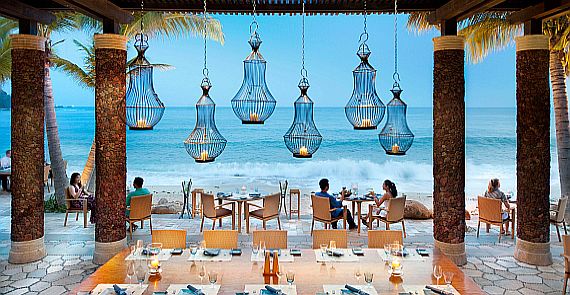
News & Stories
Wiesbaden. Politicians without strategy are driving the hospitality industry deeper and deeper into despair. Only two keywords: continuing contact and tourist travel restrictions, protracted November aid. From the hotel industry the first ones have set off in the direction of the Federal Constitutional Court. Small glimmers of hope are given by the first three vaccines and the first approval for vaccination, as well as activities by airlines to make flying faster and safer in the foreseeable future.
Wiesbaden. Open or close them? The question of how the Christmas and winter business will go on is written in the stars for many European hotel companies. In Germany, the ongoing second lockdown was just extended from late November to at least December 20. Restaurants remain closed, but how many hotels will stay opened, and how do you plan at all? A hospitalityInside flash survey among major hotel groups and consortia revealed disagreement. Some will not open up again before April.
Paris. Accor changes and expands its structures once again: CEO Sébastien Bazin gives 12 lifestyle babies and teenagers a permanent home - in London, under the name Ennismore. Their parents are Sharan Pasricha and Gaurav Bhushan.
Hong Kong. The elixir of life for Mandarin Oriental through corona is flexibility and creativity, with a touch of courage added into the mix. The most effective ingredient in the recipe for the fight against Covid-19 was and is Food & Beverage. Hunger is local, and the appetite for more is even larger. Chief Operating Officer Christoph Mares reports how the Hong Kong luxury hotel group has so far managed to save itself from the pandemic with its hotels in the virus hotspots. Covid-19 is like "a marathon... and we've already put 20 kilometres behind us!"
Washington. While President Trump is still refusing to accept the outcome of the recent presidential election, hospitality leaders in the United States have not wasted time congratulating the new President-elect Joe Biden. From Marriott, Hilton and Accor to Hyatt, Best Western, AHV Associates and the US Travel Association, the industry calls for unity, a proper Covid-19 plan, economy stimulation, immediate financial relief for small businesses and protection for the millions of hospitality employees who have lost or are about to lose their jobs.
Munich. The luxury hotel industry still clings very much to its glorified product. However, during the last few months of corona, the boom of the resort hotels has already shown what the high-end hotel industry has to focus on: 24/7 service prior, during and after the stay. It has to focus on old values filled with new experiences. On the people. This applies to the local clients, who fill part of the available beds, at least at the moment, as well as to international guests, who travel in their private jets. Today's examination of changes launches a series of articles about trends in the luxury hotel industry.
Augsburg. "There are currently no plans to sell Novum Hospitality. Correspondingly, there are neither negotiations nor talks being held," CEO David Etmenan said to hospitalityInside.com denying rumours from the market. And he gave a short insight into the current situation of the group, which has over 150 hotels at the moment.
Munich. With the second lockdown, which takes place now, in the month of November, the German hospitality industry has lost its balance: from now on it is all about insolvencies, livelihoods and the social consequences. In the background, lawsuits against the state and its regulations are piling up. Inspired by a discussion in a political circle, Prof. Dr Stephan Gerhard and Maria Puetz-Willems decided to do this interview, which shows how the constitutional state of Germany is turning into an intervening state when it comes to hospitality. And there is even a lot more at stake: the balance of the fundamental rights! Currently, the basic right to physical integrity supersedes everything. It is even forestalling the economy. But only healthy companies can guarantee a healthy economy.
San Francisco. It's not even spring yet and Airbnb is on a cleaning spree. Ahead of a much-awaited IPO, the company announced a new simplified pricing global strategy and also hired Apple ex-iPhone head of design to create the new Airbnb generation. Guests will pay no fees in future.
Washington. The CEOs and managers of 77 American hotel chains, consortia, investment/real estate companies and hotel associations have written a joint letter to US President Donald Trump asking for a liquidity injection for the industry. Recommended for imitation! Two thirds of US hotels indicate that they can only survive another six months without further relief.






